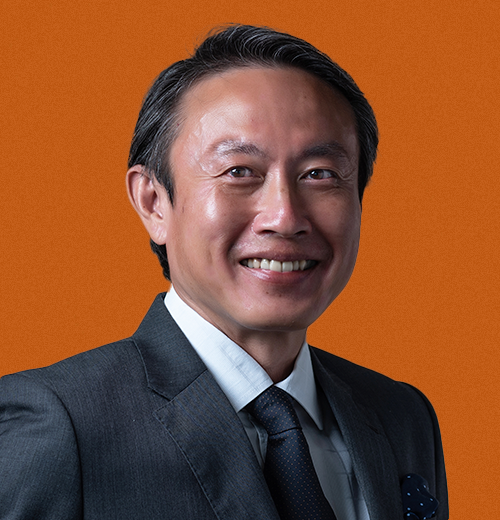On 21 March 2023, the Misuse of Drugs (Amendment) Bill 2023 (“MDA Bill“) and the Constitution of the Republic of Singapore (Amendment) Bill (collectively, “Bills“) were passed. The Bills seek to amend the Misuse of Drugs Act 1973 (“MDA“) by introducing a new legislative framework for psychoactive substances. The Bills also seek to increase the penalties for the possession of certain quantities of controlled drugs. We previously covered the introduction of the Bills in Parliament in our Update titled “Misuse of Drugs (Amendment) Bill and Constitution of the Republic of Singapore (Amendment) Bill Tabled in Parliament to Introduce New Legislative Framework for Psychoactive Substances” (available here).
In his Speech for the Second Reading of the Bills and Wrap-Up Speech, Assoc Prof Muhammad Faishal Ibrahim (Minister of State, Ministry of Home Affairs (“MHA“) and Ministry of National Development) discussed, among others, the following key changes:
New Legislative Framework for New Psychoactive Substances
The new legislative framework
New Psychoactive Substances (“NPS“) are synthetically-produced substances which mimic the effects of traditional controlled drugs, including cocaine, heroin and cannabis. Unlike the current approach under the MDA which classifies harmful substances based on their molecular structure, the new legislative framework will deal with NPS based on their capacity to produce a psychoactive effect. The new framework criminalises the manufacture, import and export, traffic, possession, and consumption of psychoactive substances, defined in the MDA Bill as substances or products that have the “capacity to have a psychoactive effect” if consumed. Psychoactive effect means the “stimulation or depression, whether directly or indirectly, of an individual’s central nervous system, affecting the individual’s mental functioning or emotional state”.
Under the existing law, an NPS once detected will be listed in the Fifth Schedule of the MDA for up to one year, during which time CNB can seize the substance to restrict its circulation while scientific studies and industry consultations are being conducted to determine if it has any legitimate uses. The authorities cannot prosecute traffickers and abusers during this interim period. The substance will be listed in the First Schedule of the MDA (“First Schedule“) as a controlled drug if it is found not to have any legitimate uses. It is only at that time when a person is found trafficking, manufacturing, importing, exporting or possessing such substance can he be prosecuted.
The approach under the new legislative framework allows the Central Narcotics Bureau (“CNB“) to take enforcement action against potentially dangerous NPS without the need to wait for their molecular structure to be identified and listed in the First Schedule. There are some exclusions under the new legislative framework. These include substances or psychoactive substances that have legitimate uses such as caffeine, alcohol, tobacco, food, and any medicinal product.
Enforcement powers
The MDA Bill amends the MDA to extend the current powers of law enforcement officers in respect of controlled drugs (such as the powers of search, seizure, arrest, and forfeiture of substances seized) to psychoactive substances.
Treatment and rehabilitation for abusers of psychoactive substances
The MDA Bill expands the definition of “drug addict” to include a person who is addicted to a psychoactive substance. This allows the Director of CNB (“Director“) to subject him to supervision, or treatment and rehabilitation which includes committal to the Drug Rehabilitation Centre (DRC).
To ensure that the laws relating to the misuse of drugs, such as the MDA authorising the arrest and detention of any person for purposes of treatment and rehabilitation, are valid under the Constitution of the Republic of Singapore (“Constitution“), the Constitution will be amended to include “psychoactive substances” in Article 9(6)(b). This will ensure the constitutional validity of the proposed powers of the Director under the MDA Bill to commit persons who have abused psychoactive substances to detention for treatment and rehabilitation.
Enhanced Penalties for Possession of Selected Controlled Drugs
The current penalties for possession offences are not differentiated by the type and quantity of the drugs involved. To have a more deterrent effect, the MDA Bill seeks to enhance the penalties for the possession of selected controlled drugs above certain weight thresholds. This applies to certain controlled drugs deemed to be more dangerous and harmful such as cannabis, cannabis mixture, cannabis resin, cocaine, diamorphine, methamphetamine, morphine and opium.
Currently, the maximum punishment for the possession of any controlled drug, regardless of weight, is 10 years’ imprisonment, or a fine of up to S$20,000, or both. The tiered punishment framework for drug possession offences under the MDA Bill is as follows:
Punishment | ||
Lowest tier | maximum of 10 years’ imprisonment or a fine of up to S$20,000, or both | |
Minimum mandatory sentence | Maximum mandatory sentence | |
Middle tier | 10 years’ imprisonment and five strokes of the cane | 20 years’ imprisonment and 10 strokes of the cane |
Highest tier | 20 years’ imprisonment and 10 strokes of the cane | 30 years’ imprisonment and 15 strokes of the cane |









